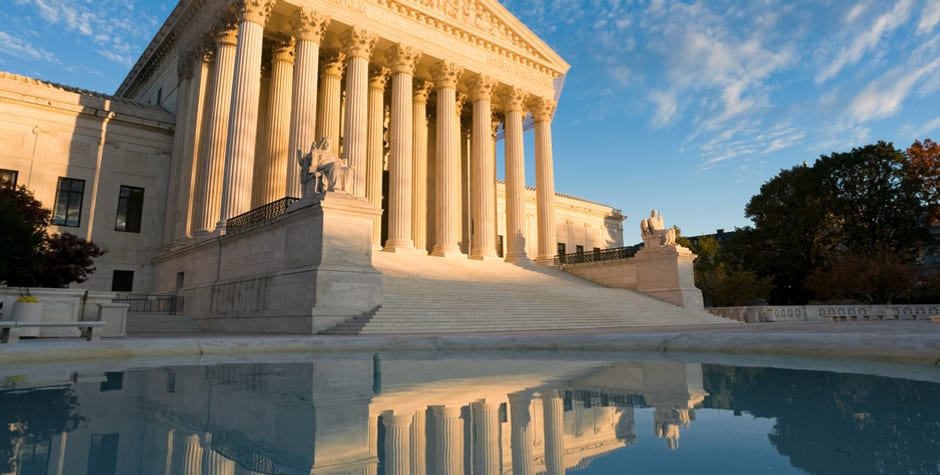The Supreme Court's Decision in West Virginia v. Environmental Protection Agency Strikes a Blow Against Ruling Class Elites and the Globalists They Serve
Ever since Woodrow Wilson and proponents of institutions like the Eugenics Research Organization linked pseudo-science with government power in order to bring about their vision of a great society, they were unprepared to allow defensible conceptions of liberty to prevent them from dominating the rest of us. Standing in the way of this unconstrained tyranny by unaccountable elites has been the United States Constitution.
In 2015 the Environmental Protection Agency (EPA) promulgated rules addressing carbon dioxide emissions from existing coal- and natural-gas-fired power plants. Operating as runaway regulators of the economy and American energy and as opponents of self-government and affordable energy, the EPA sought to re-engineer American energy production based on the agency’s expansive interpretation of the U. S. Clean Air Act. This was and is a power grab by bureaucrats inextricably linked to a globalist agenda that, like the Biden Administration, puts America last and the world and our enemies first.
Fortunately for the American people and quite consistently with ACLJ Chief Counsel Jay Sekulow’s book, Undemocratic, the concurring opinion of Justice Gorsuch in West Virginia v. EPA noted that “the framers believed that a republic—a thing of the people—would be more likely to enact just laws than a regime administered by a ruling class of largely unaccountable ‘ministers.’” (See West Virginia v. EPA at 3 (Gorsuch, J. Concurring) (citing Federalist No. 11, p. 85, C Rossiter ed. 1961). In stark contrast with the Framers, Woodrow Wilson argued that popular sovereignty vesting power in the people to elect their ministers was an embarrassment to the nation because it made it more difficult to achieve “executive expertness.” (West Virginia v. EPA at 3 (Gorsuch, J. Concurring, at p. 4 note 1).
To be fair to Woodrow Wilson, his surrender to control by experts was an embarrassment to the nation. After all, he shared the racist convictions of Democrats of his day, which were and are a considerable embarrassment that continue to this day. After all, as President, he resegregated the nation’s Civil Service and, as governor of New Jersey, he favored eugenics, culminating in Planned Parenthood’s current efforts to profit from abortions in Hispanic and African American communities. Wilson saw the mass of people as “selfish, ignorant, timid or foolish.” West Virginia v. EPA at 3 (Gorsuch, J. Concurring, at p. 4, note 1). But as Justice Gorsuch’s concurrence in West Virginia shows, James Madison concluded that the Constitution placed its trust, not in the hands of “a few but [in] a number of hands.”
Rejecting Woodrow Wilson’s obsessive addiction to the racism favored by Southern Democrats who sought to exclude on the basis of race, and rejecting control by the few, Justice Gorsuch and the United States Supreme Court’s recent decision in West Virginia v. EPA placed the power in the hands of lawmakers rather than the hands of the bureaucrats. Remember that now, Biden’s bureaucrats insist on sending scarce petroleum from the nation’s Emergency Petroleum Reserve to China amid record-high gasoline prices, while blaming Vladimir Putin for their obvious errors in judgment leading to sky-high inflation.
This is the kind of stupidity that unaccountable bureaucrats love. This is the kind of action that the states and private parties in West Virginia v. EPA sought to enjoin. This is the kind of tyranny that the Supreme Court rejected in NFIB v. OSHA (2021) when an unelected agency sought to mandate COVID-19 vaccines nationwide in the face of the national debate over such a policy.
The question of whether a federal agency has unilateral power to mandate vaccines and whether an agency has the power to unilaterally demand compliance with an agency directive implicates the major question doctrine. The proper question in this arena is whether clear congressional authority has been delegated when an agency claims the power to resolve a matter of great political significance, or when an agency seeks to intrude into an area that is the particular domain of state law. Courts must find clear and unmistakable evidence of congressional intent consistent with constitutional limits on Congress’s Commerce Clause power. Here, as in other cases, when the EPA claims the power to regulate vast swaths of American life, it not only risks intruding on Congress’s power, but it also risks intruding on powers reserved for the states. Justice Gorsuch correctly concludes that when Congress seems slow to solve problems, that does not authorize Executive Branch bureaucrats to take matters into their own hands as a substitute for enactments by representatives of the people.
Hence, the United States Supreme Court rejects the attempt by the unelected to claim power they do not possess. The Court and the Constitution rightly protect the people from tyranny by experts.
